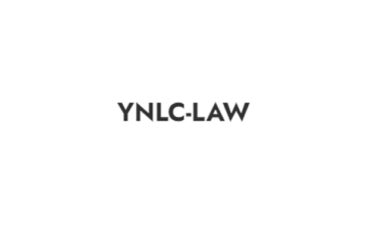What is Business Law in Canada?
Business law in Canada governs the formation, operation, and dissolution of commercial enterprises across the country. As a federation, Canada’s legal framework combines federal statutes with provincial/territorial regulations, creating a multilayered system that every entrepreneur and corporate leader must understand.
This 1,000-word guide examines the key aspects of Canadian business law, including corporate structures, contracts, employment regulations, intellectual property, and compliance requirements specific to the Canadian market.
1. The Canadian Legal Framework for Business
Division of Powers
-
Federal Jurisdiction: Incorporation of banks, airlines, interprovincial transport
-
Provincial Jurisdiction: Most business registrations, consumer protection, employment standards
-
Municipal Regulations: Zoning, licensing, and local bylaws
Key Legislation
| Area | Federal Law | Provincial Example |
|---|---|---|
| Corporations | Canada Business Corporations Act (CBCA) | Business Corporations Act (Ontario) |
| Consumer Protection | Competition Act | Consumer Protection Act (Quebec) |
| Employment | Canada Labour Code | Employment Standards Act (BC) |
2. Choosing a Business Structure in Canada
Comparison of Canadian Business Entities
| Structure | Liability | Taxation | Registration |
|---|---|---|---|
| Sole Proprietorship | Unlimited | Personal income | Provincial |
| Partnership | Unlimited (general) | Personal income | Provincial |
| Corporation | Limited | Corporate + dividend tax | Federal or provincial |
| Cooperative | Limited | Special rules | Provincial |
Provincial Nuances
-
Quebec: Civil code system affects contracts and partnerships
-
Alberta: Lower corporate registration fees
-
Nova Scotia: Unique community interest companies
3. Contracts and Commercial Agreements
Essential Elements of Canadian Contracts
-
Offer and Acceptance
-
Consideration (exchange of value)
-
Legal Capacity
-
Legality of Purpose
Special Considerations
-
Bilingual Requirements: Quebec mandates French contracts
-
Consumer Contracts: Cooling-off periods in some provinces
-
Digital Agreements: Personal Information Protection and Electronic Documents Act (PIPEDA) compliance
4. Employment Law Across Canada
Provincial Variations in Key Areas
| Province | Minimum Wage (2024) | Termination Notice | Statutory Holidays |
|---|---|---|---|
| Ontario | $16.55/hr | 1 week per year (max 8 weeks) | 9 |
| Alberta | $15.00/hr | 1 week per year (max 8 weeks) | 9 |
| Quebec | $15.25/hr | 1 week per year (max 8 weeks) | 8 |
Federal vs. Provincial Jurisdiction
-
10% of workers fall under federal regulation (banks, telecoms, etc.)
-
90% governed by provincial employment standards
5. Intellectual Property Protection
Canadian IP Framework
-
Trademarks: Trademarks Act (first-to-use system)
-
Patents: Patent Act (20-year protection)
-
Copyright: Automatic protection under Copyright Act
-
Industrial Designs: Industrial Design Act
Provincial Distinctions
-
Quebec’s Charter of the French Language affects branding
-
Indigenous traditional knowledge protections evolving
6. Tax Compliance for Canadian Businesses
Key Obligations
-
GST/HST: 5-15% depending on province
-
Payroll Deductions: CPP, EI, income tax
-
Corporate Tax: Federal + provincial rates (avg. 23-31%)
Provincial Tax Variations
| Province | Small Business Rate | HST Rate |
|---|---|---|
| Ontario | 3.2% | 13% |
| Alberta | 2% | 5% (GST only) |
| PEI | 1% | 15% |
7. Recent Developments in Canadian Business Law (2024)
Emerging Trends
-
AI Regulations: New guidelines for algorithmic transparency
-
Climate Disclosure Rules: Proposed mandatory reporting
-
Digital Services Tax: Targeting foreign tech companies
Case Study: R. v. Cameco
-
Landmark tax case affirming transfer pricing rules
-
Implications for multinational corporations in Canada
8. When to Consult a Canadian Business Lawyer
Seek legal advice for:
✅ Choosing optimal business structure
✅ Drafting shareholder agreements
✅ Resolving commercial disputes
✅ Navigating regulatory approvals
✅ Handling cross-border transactions
Provincial Law Society Resources
-
Law Society of Ontario
-
Barreau du Québec
-
Law Society of British Columbia
Conclusion: Navigating Canada’s Business Legal Landscape
Understanding Canadian business law requires awareness of both federal and provincial frameworks. From incorporation to daily operations, legal compliance forms the foundation of commercial success in Canada’s diverse markets.





















